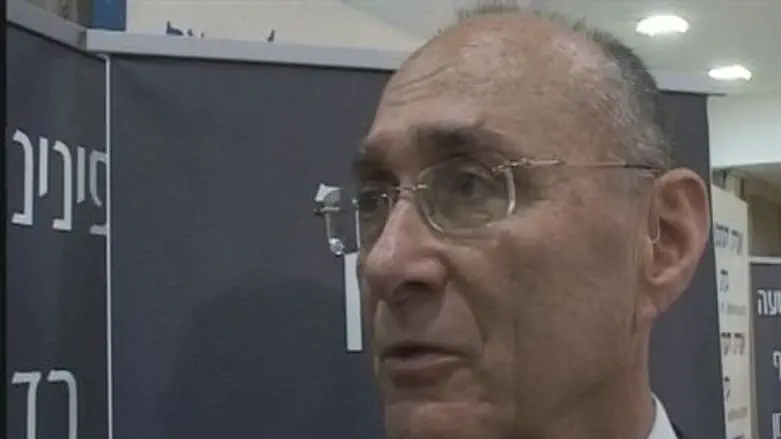
Despite the heavy rains and flooding which Israel has experienced over the past several days, National Infrastructure Minister Uzi Landau has made it clear that the country is still experiencing a severe water crisis.
Landau spoke to Arutz Sheva’s daily Hebrew journal on Monday and said that “there hasn’t been such a dry year for the past ninety years,” meaning that despite the rains the crisis is far from over.
Landau pointed out that six years ago, then National Infrastructure Minister Avigdor Lieberman presented a plan to desalinate water. That year was also a particularly dry year, said Landau, but several days after Lieberman presented his plan, heavy rains fell in Israel, causing the Finance Ministry to reject the plans and thus leaving the water situation to continue to deteriorate.
“Right now we are concerned with not dropping below the ‘black lines’,” said Landau and added that after years of a drought, the parched land is having difficulty absorbing the little amounts of rain which do fall.
Landau said that he presented worrying statistics prepared by experts on Israel’s water crisis, during a meeting of the Knesset’s ministers on Sunday which was aimed at discussing the crisis and how to resolve it before it is too late. “We presented general ideas for solving the crisis, and in three weeks’ time we will offer practical solutions,” said Landau, who emphasized the need for several government offices to work together to solve the crisis under the leadership of the prime minister.
Among the actions that must be taken, according to Landau, is running desalination plants even during times of the day when there is a heavy demand for electricity. The state would also be required to drill water from wells for temporary use, and would later be required to return water to those same wells. Landau mentioned that coordination would be required with the Ministry of Health in order to maintain the levels of water which it demands in those wells. The Environment Ministry would also have to take part in removing salts, which would require construction permits from the Interior Ministry. In other words, said Landau, “All ministries need to assist in the water crisis.”
Ultimately, emphasized Landau, the key player in solving the water problem is the Finance Ministry which determines the Water Authority’s budget. “The government ministers can make demands, but ultimately – the Finance Ministry decides,” he said, citing the example of companies such as Israel's government water carrier, Mekorot, which he said the Finance Ministry aims to weaken despite their importance to the water issue. The same type of claims were levelled at the Finance Ministry bureaucrats by ministers dealing with firefighting equipment and preparation after last week's Carmel Fire, who claimed that their requests were authorized at the government level but not carried out due lack of Finance Ministry appropriation.
Landau said that any actions taken which are defined as acts of emergency must be subsidized by the state and not by the citizens. “We will insist on the fact that anything defined as an emergency be subsidized by the state so that we do not have to charge citizens higher water fees. We cannot demand from the public that it consume less yet pay more.”
